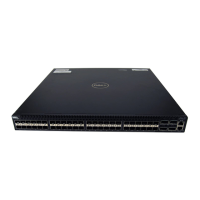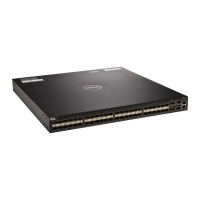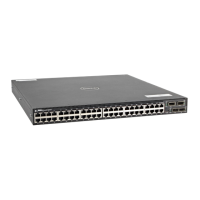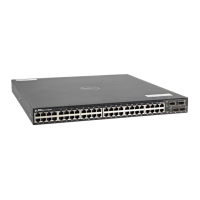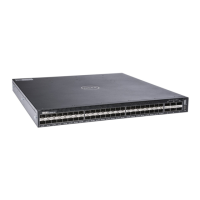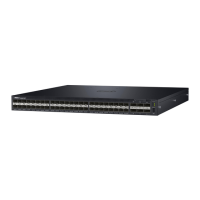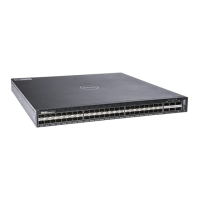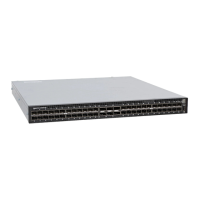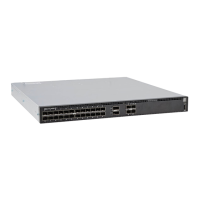Version 9.1(0.0) Added support for config and ecmp traps.
Version
8.3.19.0
Introduced on the S4820T.
Version 8.3.11.1 Introduced on the Z9000.
Version 8.3.7.0 Introduced on the S4810.
Version 8.4.1.0 Added support for VRRP traps.
Version 7.6.1.0 Added support for STP and xSTP notification types.
Introduced on the S-Series.
Version 7.5.1.0 Introduced on the C-Series.
E-Series legacy
command
Usage
Information
In order to configure the router to send SNMP notifications, enter at least one
snmp-server host command. If you enter the command with no keywords, all
trap types are enabled for the host. If you do not enter an snmp-server host
command, no notifications are sent.
In order to enable multiple hosts, issue a separate snmp-server host command
for each host. You can specify multiple notification types in the command for each
host.
When multiple snmp-server host commands are given for the same host and
type of notification (trap or inform), each succeeding command overwrites the
previous command. Only the last snmp-server host command will be in effect.
For example, if you enter an snmp-server host inform command for a host
and then enter another
snmp-server host inform command for the same
host, the second command replaces the first command.
The snmp-server host command is used with the snmp-server enable
command. Use the snmp-server enable command to specify which SNMP
notifications are sent globally. For a host to receive most notifications, at least one
snmp-server enable command and the snmp-server host command for that
host must be enabled.
NOTE: For v1 / v2c trap configuration, if the community-string is not defined
using the snmp-server community command prior to using this command,
the default form of the
snmp-server community command automatically is
configured with the community-name the same as specified in the snmp-
server host command.
Configuring Informs
To send an inform, use the following steps:
1. Configure a remote engine ID.
2. Configure a remote user.
3. Configure a group for this user with access rights.
Simple Network Management Protocol (SNMP) and Syslog
1569
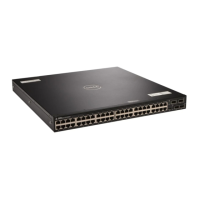
